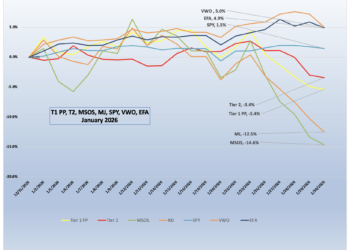A Wisconsin senator is trying again to legalize cannabis in her state while facing strong headwind from a Republican-led legislature. And California Gov. Gavin Newsom signed bills regarding THC testing and Schedule 1 drugs.
Senate Minority Leader Melissa Agard (D-Madison) has filed a bill to legalize personal possession and cultivation of cannabis and allow for a regulated market for production, processing and sales. But it’s not the first time.
“I’ve introduced this bill for well over a decade,” she said in an interview with CRB Monitor, adding that nearly 70% of Wisconsinites support legalization.
But with a Republican-led Senate and Assembly, she knows it has a slim chance of advancing this year as they won’t schedule a hearing. “A gerrymandered majority won’t allow a discussion in the building.”
The legislation, also introduced by Rep. Darrin B. Madison (D-Milwaukee), has yet to receive bill numbers as it has been circulating among lawmakers since Sept. 22 for cosponsors, part of the legislative process in Wisconsin. There are at least 30 cosponsors, a spokeswoman for Agard said Thursday.
“People in Wisconsin indulge in cannabis use, and deserve the ability to buy safe cannabis and use it responsibly without being criminalized,” Madison said in a statement.
The bill would allow individuals 21 and older to possess up to 5 ounces of cannabis. Possession above that amount would be reduced to misdemeanors, unless the person tries to conceal large amounts from law enforcement or uses lethal surveillance systems. Individuals could also grow up to six plants.
Production above that amount, processing and selling would require a permit from the Department of Revenue. Producers and processors would also need permits from the Department of Agriculture, Trade and Consumer Protection. The DATCP would register testing labs.
An excise tax of 15% on wholesale sales to processors and 10% on retail sales would be imposed, with 60% of the proceeds going toward a “community reinvestment fund.” But a medical-use program for people with “debilitating medical conditions” would be put in place. Patients with medical cannabis permits would not have to pay the tax.
It would require expungement of most misdemeanor convictions and review of felony convictions. The bill also provides for employment protections for cannabis use, diversity and equity grants, grants for healthcare programs, and funding for law enforcement training.
Although she knows the bill is a long-shot this year, Agard is pressing on with her grassroots campaign, visiting over a dozen cities to promote the legislation at hemp farms and CBD businesses. While existing hemp producers have been pushing back on cannabis legalization in some states, Agard said most of the concern from this industry in her state is focused on potential federal changes.
She said she knows some hemp farmers want to stay strictly hemp, some businesses want to work with both, and some will want to convert fully to cannabis.
“At the state level, I want to honor the plant,” she said. “I don’t think we need to pick winners or losers.”
If the bill does not get through the legislature, Wisconsin voters have no other path to legalization. Wisconsin is not a binding referendum state. And this year, the majority passed a law preventing even non-binding referendums, Agard said.
Gov. Newsom signs cannabis testing and “if” Schedule 1 bills
On the West Coast, California Gov. Gavin Newsom signed two bills on Sept. 30. One requires changing testing regulations for edible products with low amounts of THC. The other would allow doctors to administer Schedule 1 narcotics if the federal government reschedules them as controlled substances.
AB 623 requires the Department of Cannabis Control to adjust testing variances for edibles that contain less than 5 milligrams of THC. Previously, the law required that labs certify a product does not exceed 10 mg per serving, plus or minus 10%.
Meanwhile, AB 1021 is seen as a small step toward psychedelics support. It allows doctors to administer Schedule 1 drugs if they are rescheduled under the federal Controlled Substances Act. While the short bill does not specifically mention any psychedelics, the FDA has designated psilocybin and MDMA as “breakthrough therapies” that could be approved for medical use.
The new law, however, states that it “does not apply to cannabis or a cannabis product.”
Newsom is still hesitating on a broader psychedelics legalization bill sitting on his desk. SB 58 would allow for personal use of certain psychedelic drugs beginning in 2025 and requires a Health and Human Services Agency working group to study a potential regulated, therapeutic program.
Other bills awaiting his signature include AB 374, which would allow cannabis retailers to operate kitchens, host events and sell non-cannabis food and beverages; SB 622, which would modify the track and trace system to potentially eliminate single-use tags; and AB 1207, which would prohibit the marketing of cannabis products toward children.
Newsom has until Oct. 14 to decide on these bills.












